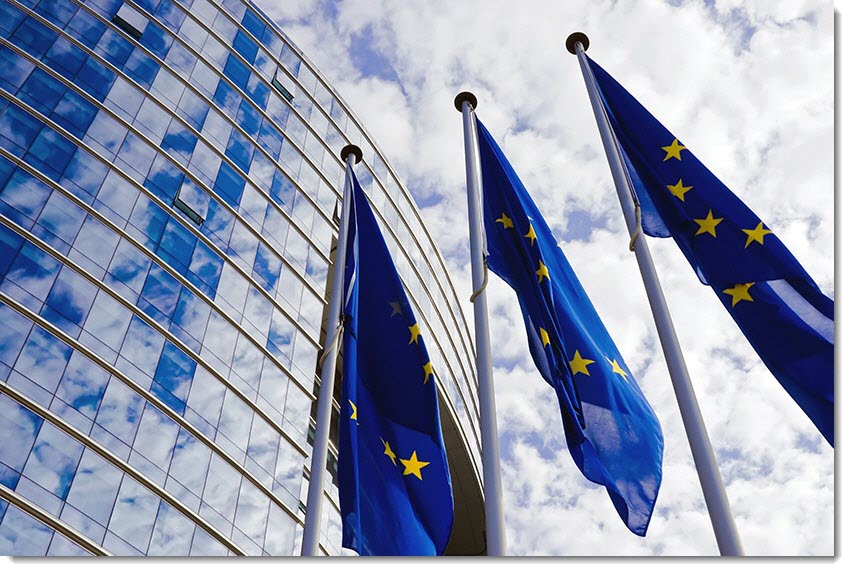
21/02/2025
EU Insight 21 February 2025
Brussels, 21 February 2025
EMERGENCY MEETING ON UKRAINE AS EU IS SIDELINED FROM US-RUSSIA DISCUSSIONS
In a radical policy shift compared to the Biden Administration, US diplomats sat down with Russian counterparts in Saudi Arabia this week, to discuss a path towards ending the war in Ukraine. French President Macron organised a series of emergency meetings in Paris aiming to coordinate a response to these developments with European leaders. However, the discussions yielded no common position, with notable disagreements on a NATO peacekeeping force in Ukraine. Despite the lack of results, the meeting seems to have been warranted in hindsight, given Trump’s accusations to President Zelensky of starting the war. With an unpredictable US, closer coordination on Ukraine amongst European NATO allies is now more necessary than ever.
FINANCE MINISTERS DISCUSS BOOSTING MILITARY SPENDING AMID GEOPOLITICAL TENSIONS
Amid rising geopolitical tensions, EU finance ministers discussed defence spending this week. Ideas floated included collective EU borrowing to fund the production and procurement of military equipment, or exempting defence investments from the EU’s fiscal rules. While some Member States such as Poland or Spain appeared open to such initiatives, not all Member States seem to have been enthused by the ideas. While discussions in the Council are likely to drag on, the European political groups EPP, S&D, Renew, and Greens have made their stance clear in a joint letter calling for a boost in European military expenditure. This heightened political attention on the topic comes amidst, an increasingly but expected hostile stance towards the EU from the US administration, who notably hinted at scaling back its military presence in Europe.
GERMANY HEADS TO THE POLLS HOPING TO PUT AN END TO ITS POLITICAL TURMOIL
This Sunday Germany will hold its national elections, following November’s collapse of the three-party “Traffic light” governing coalition. Migration and the economy have dominated the election campaign, but the new government will have to address a more fundamental challenge: how to re-position Germany as one of the EU’s leading Member States? According to most recent polls, Friedrich Merz’s Christian Democrats (EPP) should emerge victorious on Sunday. However, their result is unlikely to be enough to secure an outright majority, which means coalition negotiations with either the Greens, Socialists or liberals may be necessary. While Merz will want to avoid entering a three-party coalition, considering recent history, what is expected to be a historically high result for the far-right AfD (ESN) may complicate coalition negotiations for Germany’s democratic parties.
COMMISSION PRESENTS ITS VISION FOR AGRICULTURE AND FOOD
The Commission unveiled its new strategy for agriculture and food aimed at guiding the EU’s actions in these strategic fields until 2040. The strategy aims to provide answer to last year’s protests and general discontent voiced by farmers and other stakeholders in the sector. As such, the strategy lays out initiatives and strategies aimed to build a fair, resilient and competitive agri-food system in the EU. Great emphasis is placed on providing assistance to small businesses, make the sector attractive for younger generations and to increase the engagement with rural areas. Importantly, in its strategy the Commission also outlines its intention to simplify the Common Agricultural Policy (CAP) to increase the provision of more directed aid.
COUNCIL AND PARLIAMENT AGREE TO REDUCE FOOD AND TEXTILE WASTE
The Parliament and Council reached an agreement concerning the Waste Framework Directive. The finalised framework aims to reduce food waste by 2030 and increase the sustainability of the textile sector, as part of the EU’s broader circular economy agenda. Specifically, the new rules set out reduction targets of 10% in manufacturing and processing and 30% in retail, restaurant, and household food waste by 2030. As for the textile sector, the agreed upon framework aims to limit ultra-fast fashion practices. While all textile producers will face feeds to fund textile waste management processes, the new rules could lead to the imposition of regressive fees, depending on the durability of textile products.
COMING UP NEXT WEEK
• 24 February: Foreign Affairs Council. On the agenda: Russian aggression against Ukraine, Situation in the Middle East, Crisis in the DRC.
• 24 February: Agriculture and Fisheries Council. On the agenda: Market situation in view of the invasion of Ukraine.
• 24 February: EU-Israel Association Council. On the agenda: Conflict in Gaza and Israeli-Palestinian relations, regional issues including Iran.
• 25 February: General Affairs Council. On the agenda: preparation of March European Council, Legislative programming.
• 26 February: College of Commissioners. On the agenda: Clean Industrial Deal, First and second Omnibus packages, Affordable energy action plan.
Tuomas Tierala, Managing Partner Brussels, Kreab
_________________________________________________________
Kreab • Tel: +32 2 737 6900 • tuomas.tierala@kreab.com • www.kreab.com/brussels • X: @KreabEU • LinkedIn: Kreab Worldwide
